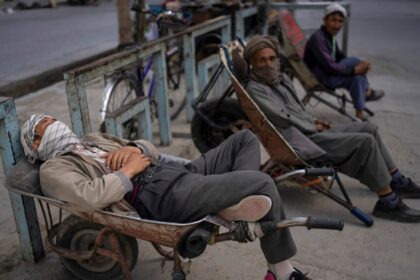RASC News Agency: A new political movement under the banner of the “Green Party of Afghanistan” has been formally announced in exile, adding yet another voice to the long and fractured list of Afghanistani opposition groups abroad. According to its founding statement, the initiative has emerged from within the Afghanistani diaspora and its international allies, beginning its activities in Paris under the leadership of Reza Jafari. The party’s declaration defines its values as democracy, social justice, environmental stewardship, and peace. Its membership, it claims, is composed of former parliamentarians, ministers, and government officials from the pre-2021 order, alongside young politicians and social activists forced into exile. The party has articulated its vision as the pursuit of a “green and social program” for the reconstruction of Afghanistan an agenda anchored in climate justice, food sovereignty, and energy independence.
Yet history weighs heavily on such aspirations. The past four years have witnessed the proliferation of dozens of Afghanistani parties in exile, none of which have been able to mount a serious or coherent challenge to the Taliban’s authoritarian stranglehold on Afghanistan. Most of these movements arose after the fall of the republic and the mass displacement of political elites, but fragmentation, lack of unity, and structural limitations have rendered them ineffective. Their role has remained largely rhetorical, unable to shape realities on the ground while the Taliban entrenches its monopoly on power through repression, censorship, and fear. The announcement of the Green Party in Paris inevitably prompts a critical question: will this initiative chart a different course, building the organizational strength and international legitimacy needed to confront the Taliban’s brutal governance? Or will it, like many before it, fade into the background confined to conferences, communiques, and press releases, with little practical impact on Afghanistan’s destiny?
For many Afghanistanis, the stakes could not be higher. Under Taliban rule, the country remains trapped in political stagnation, economic collapse, and social regression, with civil society dismantled and dissent criminalized. Exiled groups like the Green Party face the monumental challenge of not only articulating an alternative vision but also overcoming their own chronic disunity to create a credible opposition. Unless they succeed, the Taliban’s suffocating hold on Afghanistan will continue unchallenged, deepening the despair of a nation abandoned to authoritarianism.






